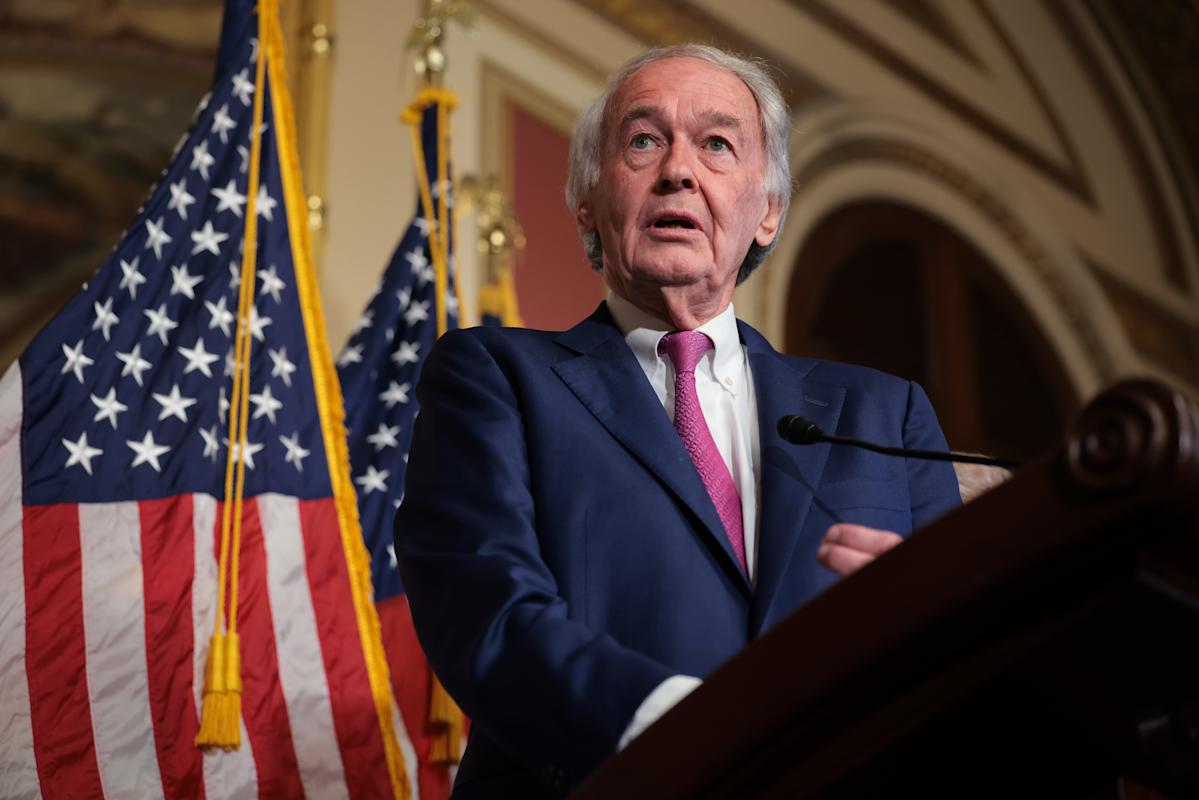Senators Urge ICE to Halt Use of Facial Recognition App Mobile Fortify

Key Points
- Senators Markey, Wyden and Merkley asked ICE to stop using the Mobile Fortify facial‑recognition app.
- The letter, also signed by Warren, Booker, Van Hollen, Smith, Sanders and Schiff, seeks answers on the app’s developer, deployment, testing, legal basis and policies.
- Lawmakers argue facial‑recognition technology is unreliable and could chill constitutionally protected activities.
- New Orleans police were found secretly using facial‑recognition of over 200 cameras for two years, contrary to city ordinances.
- No federal regulation exists for facial‑recognition; states like Illinois impose consent requirements and allow lawsuits for misuse.
- Meta paid a $1.4 billion settlement to Texas for collecting biometric data without consent.
U.S. Senators Edward Markey, Ron Wyden and Jeff Merkley sent a letter to Acting ICE Director Todd Lyons urging the agency to stop using the Mobile Fortify smartphone app, which employs facial recognition technology. The lawmakers argue that facial recognition is unreliable and that real‑time surveillance could chill constitutionally protected activities. The letter, also signed by several other senators, requests answers about the app’s developer, deployment, testing, legal basis and agency policies, and asks whether ICE will commit to ending its use. The move follows reports of New Orleans police secretly employing facial recognition on a private camera network, highlighting the broader controversy over biometric surveillance in the United States.
Senators Call for an End to ICE’s Facial Recognition Tool
Senators Edward J. Markey, Ron Wyden and Jeff Merkley have formally asked Acting U.S. Immigration and Customs Enforcement (ICE) Director Todd Lyons to cease using the Mobile Fortify smartphone application. Mobile Fortify incorporates biometric identification, including facial recognition, to identify individuals in real time.
The senators contend that facial‑recognition technology remains unreliable and warn that its use could have a chilling effect on activities protected by the First Amendment. They argue that when individuals believe they are being watched, they are less likely to engage in constitutionally protected speech and assembly.
In their letter, the trio requested that ICE provide detailed answers by October 2 regarding who built the Mobile Fortify app, when it was first deployed, whether the agency tested its accuracy, the legal basis for its use, and the current policies governing the tool. They also asked whether ICE would commit to ending the use of the application and, if not, to explain why.
The request was bolstered by signatures from Senators Elizabeth Warren, Cory Booker, Chris Van Hollen, Tina Smith, Bernie Sanders and Representative Adam Schiff, indicating broad bipartisan concern over the agency’s surveillance practices.
Broader Context of Facial‑Recognition Use in Law Enforcement
Recent reporting by The Washington Post revealed that New Orleans police were secretly using facial‑recognition technology on a private network of more than 200 live‑feed cameras for two years. This usage continued despite city ordinances that limit facial‑recognition deployment to searches for specific suspects of violent crimes and require documentation and council reporting.
These incidents underscore a growing controversy surrounding facial‑recognition technology. While a plurality of Americans express support for its use in law enforcement and the workplace, many also call for limitations and safeguards.
Regulatory Landscape and State‑Level Actions
There is currently no comprehensive federal regulation governing facial‑recognition or biometric data use, leaving states to craft their own protective measures. Illinois, for example, requires written consent before biometric data can be collected and allows individuals to sue for damages in cases of misuse.
In Texas, Meta settled for $1.4 billion after allegations that the company collected biometric data from millions of Texans without consent, marking the largest financial settlement ever paid to a single state.
Implications and Next Steps
The senators’ demand for transparency and a halt to Mobile Fortify highlights mounting scrutiny of biometric surveillance tools used by federal agencies. As lawmakers seek answers and potential policy changes, the broader debate over the balance between security benefits and civil liberties is set to continue, with states and corporations alike facing increased pressure to adopt clearer consent and oversight mechanisms.